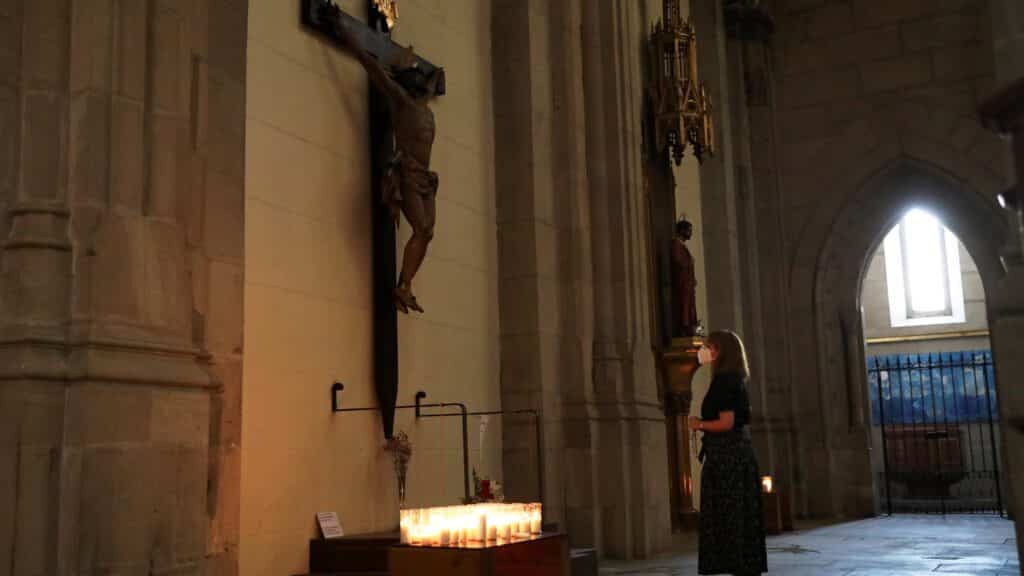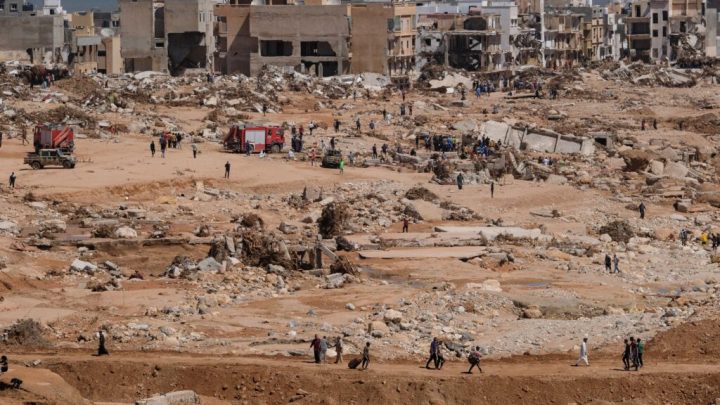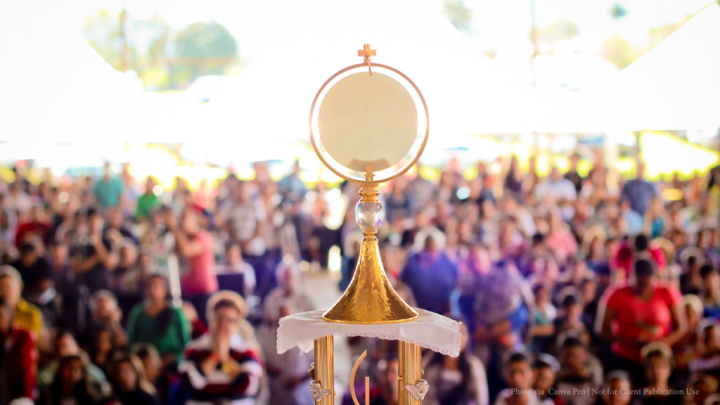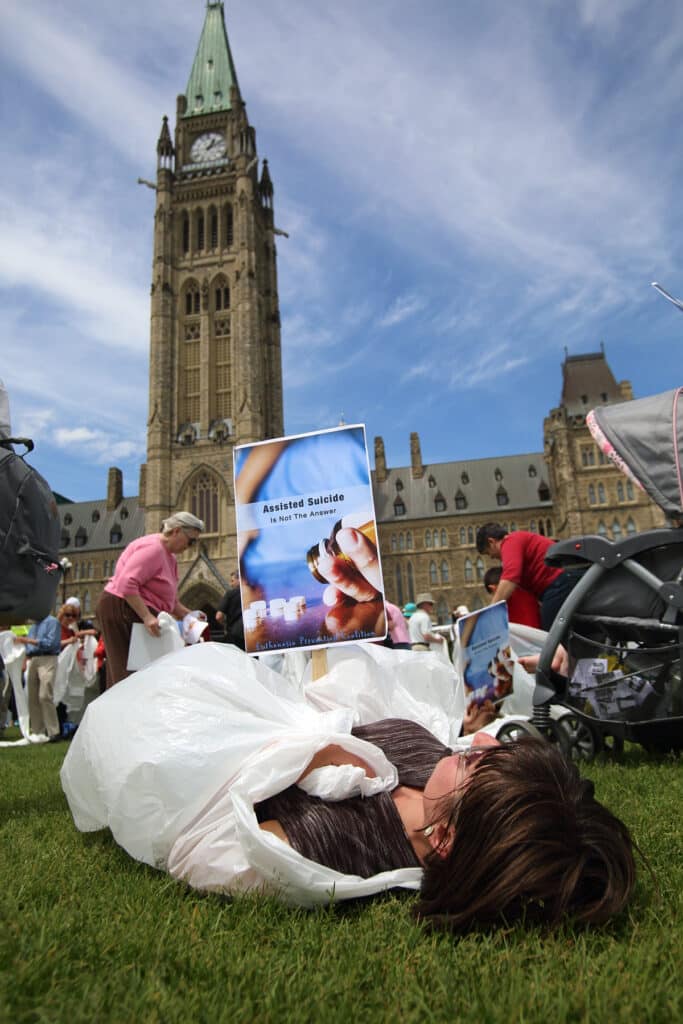
(OSV News) — Spanish bishops met Oct. 30 to discuss Spanish ombudsman Ángel Gabilondo’s report on abuse in the Catholic Church, delivered Oct. 27 to government officials and seen by church experts see as populist as it focuses only on the Catholic church and, in their opinion, “is not accurate.”
“If you are a public authority, you should be worried about every victim of sexual abuse, not only those of the church,” said Yago de la Cierva, a Spanish communications professor who teaches at the Pontifical University of the Holy Cross in Rome, author of a book on crisis management for the church.
“What you need to do is a proper investigation regarding all kind of sexual abuse cases and then attribute this to whatever the cause was, so schools, doctors, sports trainers — something similar to what the Royal Commission did in Australia,” he told OSV News, pointing to methodology by the Spanish ombudsman that was “inaccurate” in his opinion and ranged between fewer than 500 cases and 400,000 people allegedly abused.
The ombudsman had announced that he would prepare a report on the scope of sexual abuse in the church after the Spanish newspaper El Pais revealed more then 1,200 cases of clerical sexual abuse in reports published by its journalists over the course of three years.
Initially, an 18-month independent investigation included 487 cases involving alleged victims who spoke with the ombudsman’s team.
Later, Spanish company GAD3 conducted the survey of 8,013 people for the ombudsman’s investigation. In the course of the research, 11.7% of the participants said they have been abused as minors, 1.13% said that the abuse occurred in the religious sphere and, of these, 0.6% said they have been sexually abused by a priest or religious. This figure contrasted with 3.36% of those surveyed who said they have suffered this kind of abuse in their family environment.
The GAD3 survey had a margin of sampling error for all respondents of plus or minus 1.1 percentage points.
“The objective was not to know all the cases,” the ombudsman said. In fact, “to make an estimate would be to overlook the respect due to the victims, the voluntary silence of many of them and the circumstance that some of them are no longer with us,” Gabilondo said Oct. 27.
Media all over the world quickly extrapolated the data and applied the number of victims of abuse in the church environment to Spain’s adult population, which stands close to 39 million. “That would mean some 440,000 minors could have been sexually abused by Roman Catholic priests, members of a religious order and lay members of the church in recent decades,” The Associated Press reported.
“It is a necessary report to respond to a situation of suffering and loneliness that for years has been kept, in one way or another, covered by an unjust silence,” said Gabilondo at a press conference held after the delivery of the report to the president of the Congress of Deputies, Francina Armengol. The document, he added, “responds to what the victims required,” which was “to be heard, attended and reciprocated. They are the first, last and central sense of this report.”
According to the ombudsman, while collecting testimonies of 487 victims, he learned they “have experienced a feeling of loneliness after reporting the facts, to the point of having to face a new damage.” This is a “secondary victimization” inflicted by the Catholic Church, he said, an institution from which “exemplary behavior is to be expected,” but whose “response in many cases has been insufficient and dilatory. Victims have rarely been adequately and sufficiently cared for.”
The ombudsman’s office presided by Gabilondo has recommended the church celebrate “a public act of recognition of the victims.” The ombudsman has recommended a state fund be created to pay compensation to victims, which “would be very important for the church to join” in, he stressed.
Cardinal Juan José Omella of Barcelona, president of Spanish bishops’ conference, said Oct. 28 on X, formerly known as Twitter, “Each victim is a terrible drama for which we ask forgiveness,” but at the same time the “Ombudsman’s report does not make any extrapolation, which is done intentionally by some media outlets,” he pointed, adding that “one thing is the truth and another unfounded extrapolations.”
“We continue to work to put an end to this terrible scourge in the Church and in society as a whole,” Cardinal Omella said.
José Beltrán of La Razón daily newspaper pointed out that if 0.6% of those surveyed who said they were attacked by a priest or a consecrated person were equivalent to 236,000 people abused, out of Spain’s 39 million adults, “the truth is that if you take that figure of 236,000 as a current snapshot from the survey and cross it with the 16,126 priests and 7,851 male religious in Spain, it would simply emerge that each priest or consecrated person would have attacked 10 average people.”
” That, counting on labeling every churchman as an abuser, is an unrealistic extreme,” Beltrán said. “If at least the license was given to trust that half of the priests and brothers would be free of suspicion, each predator would have up to 20 victims.”
The ombudsman also highlighted some good practices that he has found during his investigation, praising the prevention protocols of the dioceses.
The church in Spain, however, is “late, late, late,” with its own investigation, said de la Cierva, who reminded that Pope Francis recommended in February 2019 that such investigations be conducted by national churches.
“The bishops did not accept Pope Francis’ recommendations. They only started to do this when they saw that the government was running their own investigation. So it was late, late, late,” the expert said, pointing out the bishops hired a very “expensive and completely ineffective lawyer” to run the church’s investigation. “First, he delayed delivery of the church report from June to September, then from September to October and then to Christmas time,” which made the bishops “lose the initiative,” he added.
On Oct. 30 an extraordinary plenary assembly of the Spanish bishops’ conference focused on the issue of sexual abuse committed by members of the church. The meeting of the bishops, who participated online or in person, studied and evaluated the report presented by the ombudsman. They also discussed the Cremades & Calvo Sotelo law firm’s request to extend the deadline for the delivery of its own report on this issue, which it has been carrying out on behalf of the bishops’ conference.
For de la Cierva, the trickiest part of the ombudsman report is the demand for financial compensation. “He said the church should be the first contributor, which given the scope of abuse in the whole country, is simply blackmailing,” the professor remarked.
For the professor, the summit on abuse organized by Pope Francis at the Vatican in February 2019 made important suggestions that were never made obligatory for the whole church. “It was not complete, because a set of recommendations without a legal force in such a crisis is not sufficient,” he said.
“You need to show that you are one global institution, which means that you have to enforce what is good for the whole church, not just for one country,” de la Cierva said, noting that if the church is late with its own data, the public opinion will firmly set their mind on the data first reported and the notion the church has done little to address the crisis will be “extremely hard,” if not “impossible,” to change.
Paulina Guzik is international editor for OSV News. Follow her on X (formerly Twitter) @Guzik_Paulina. Alfa y Omega, Spanish Catholic weekly, contributed to this story.




